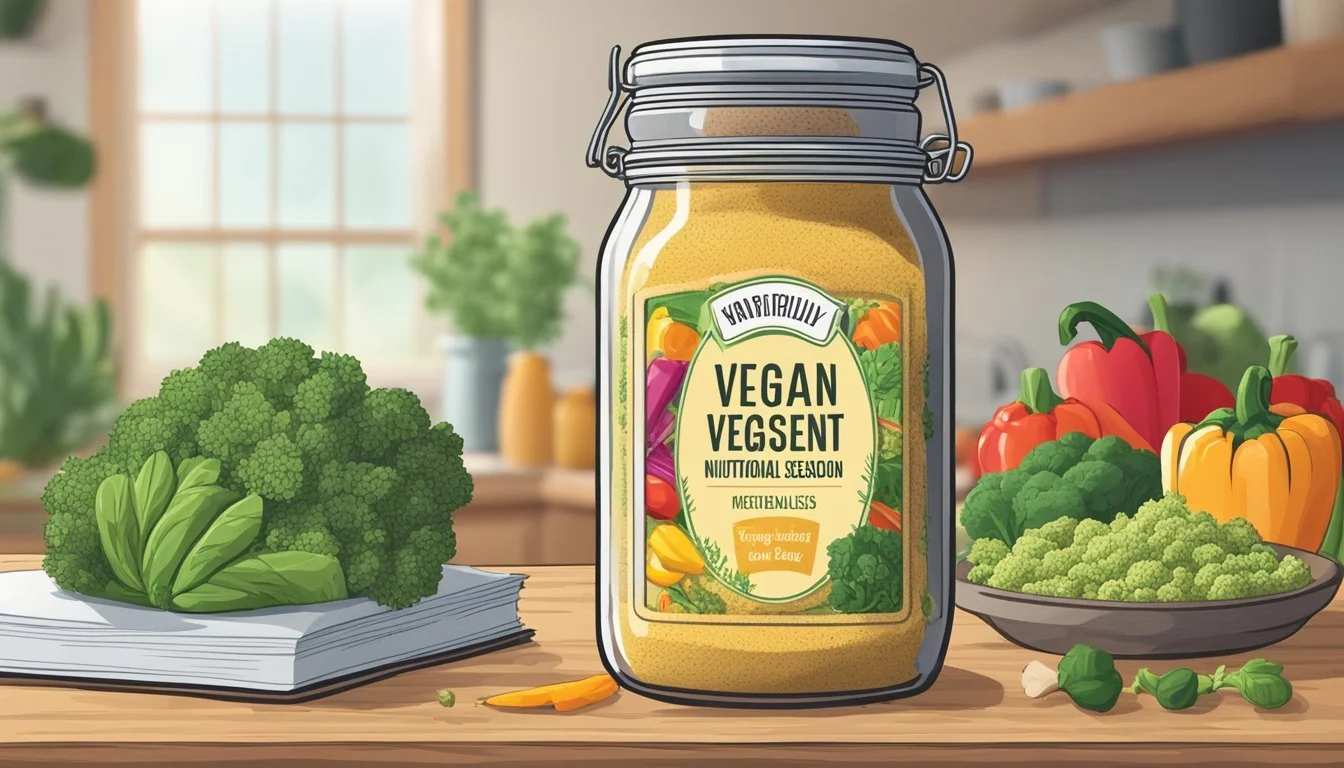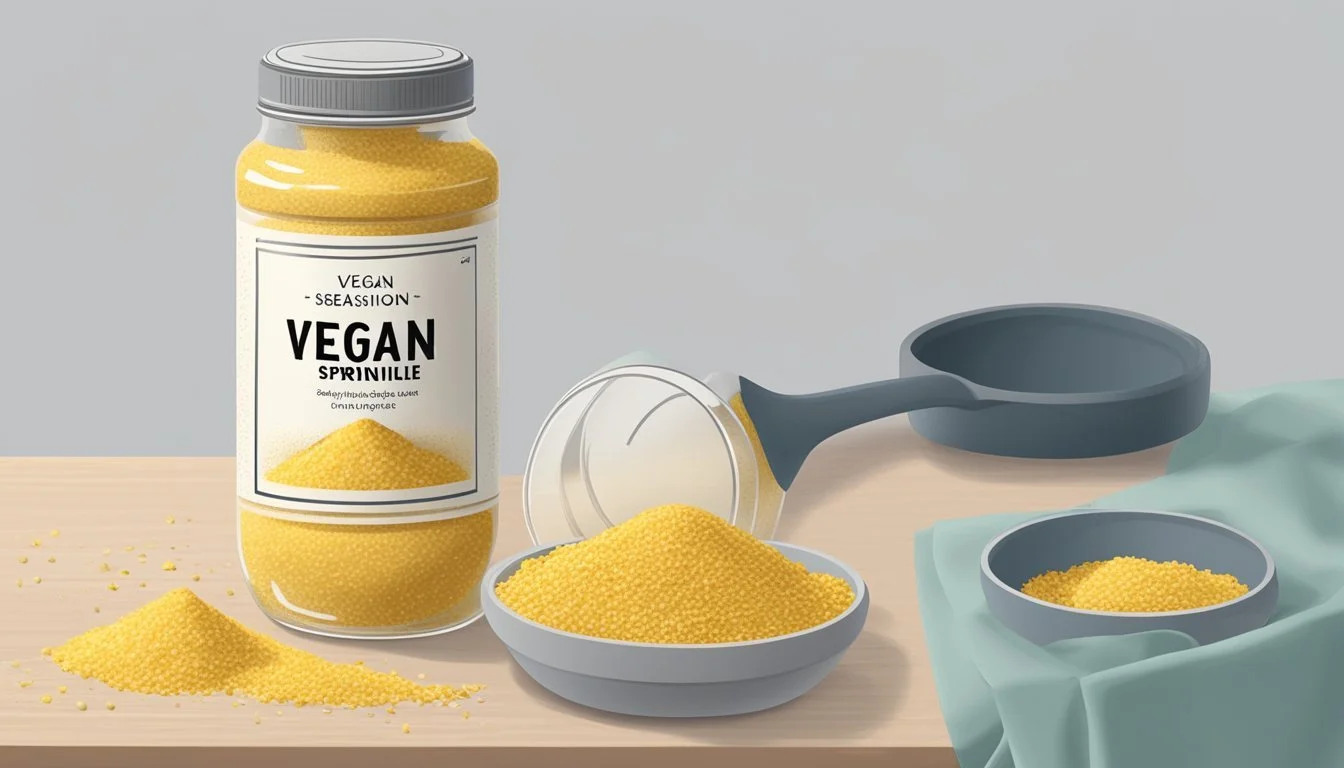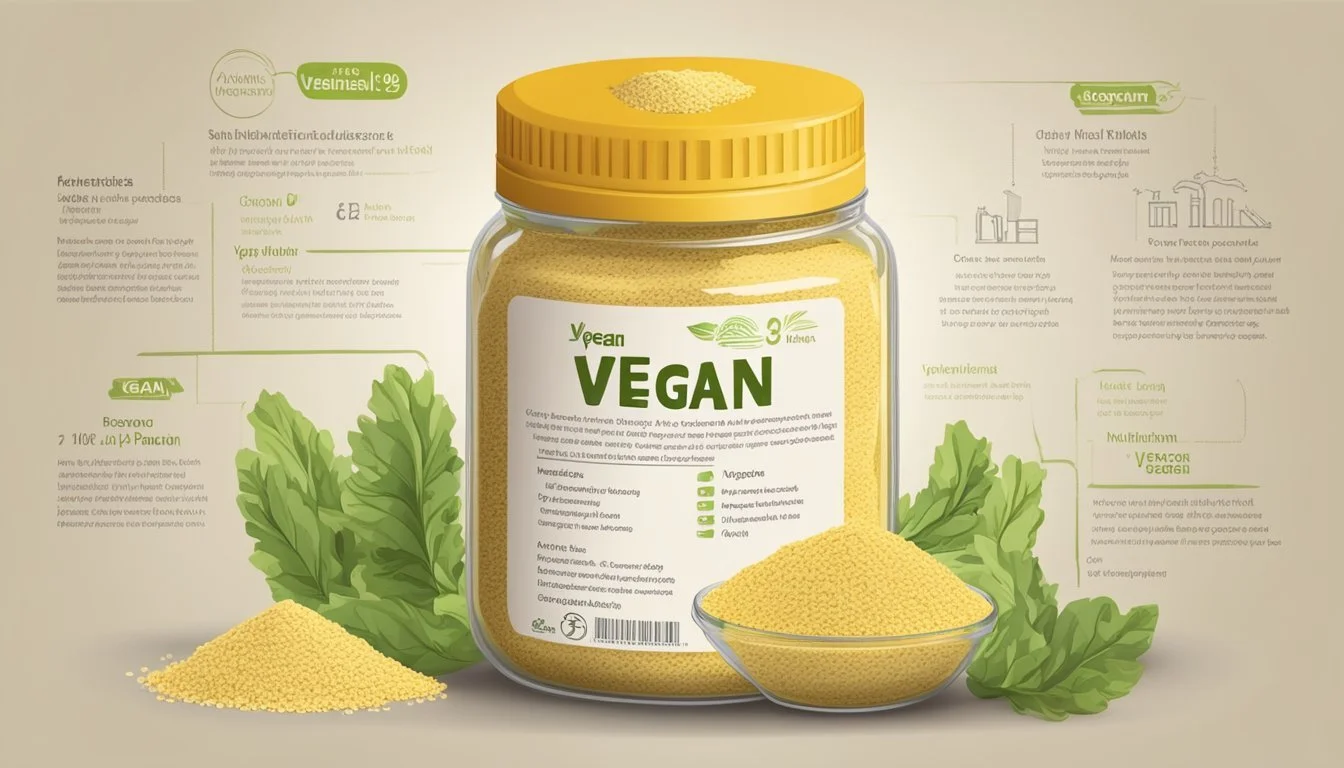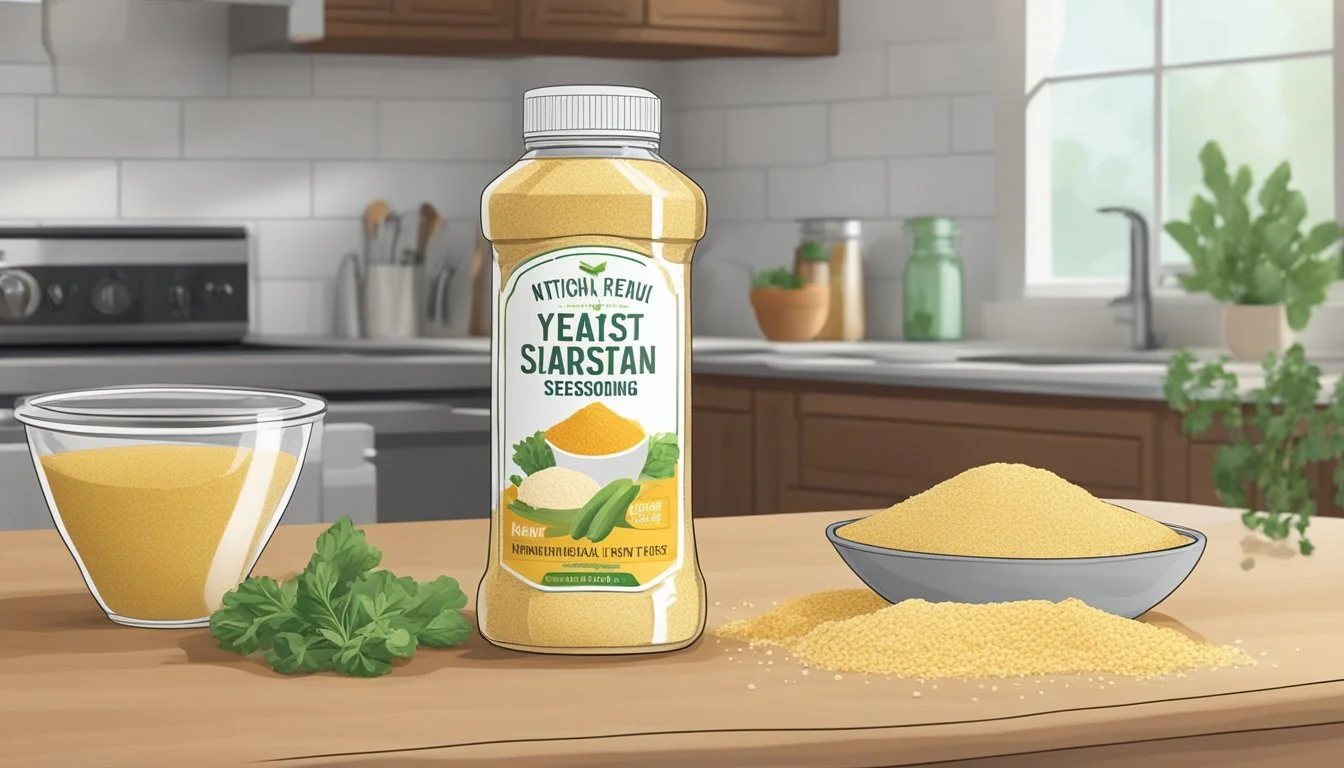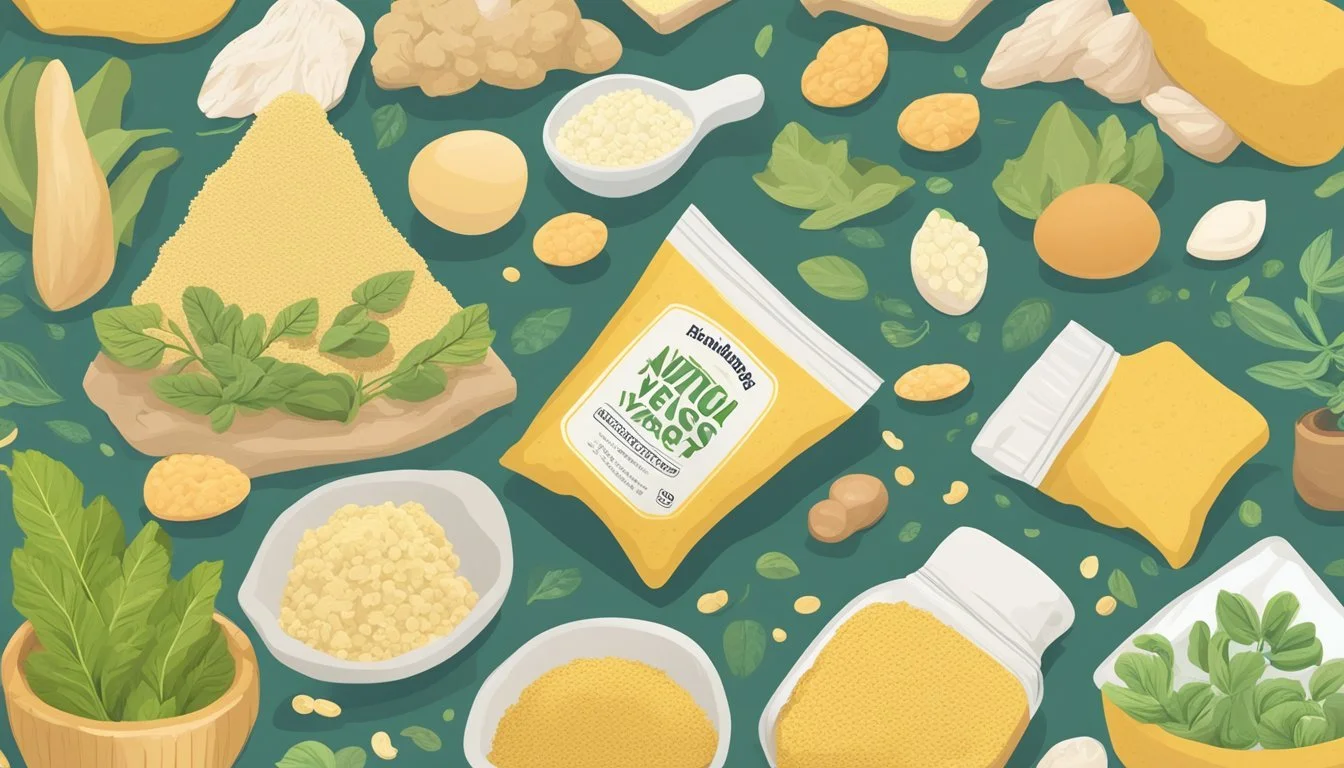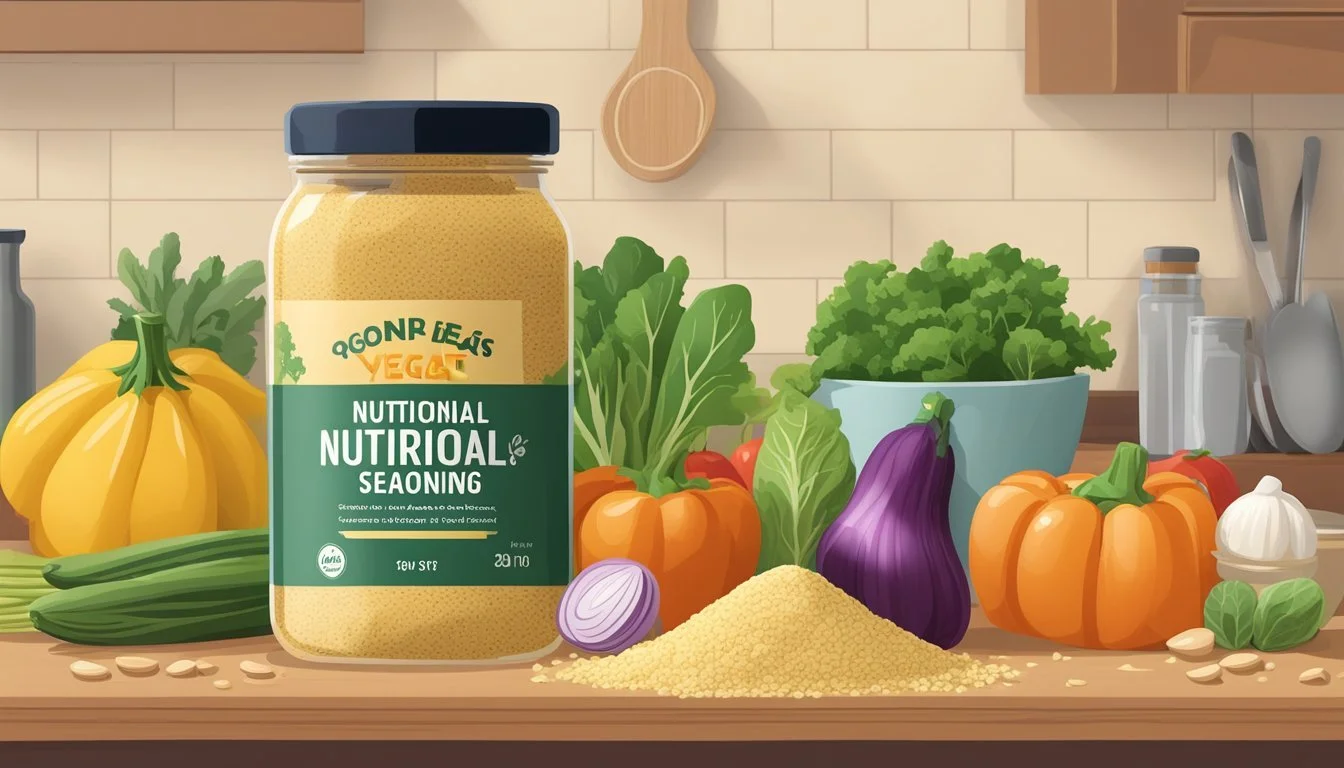Is Nutritional Yeast Seasoning Vegan?
Unveiling the Facts
Nutritional yeast, often referred to as "nooch," is a deactivated yeast commonly used in vegan cooking. Its popularity stems from its cheesy, umami-rich flavor, which makes it an excellent addition to various dishes. It is derived from Saccharomyces cerevisiae, a species of yeast, which is cultivated on molasses, harvested, washed, and then deactivated with heat. After the dehydration process, it is crumbled or flaked, and sometimes fortified with vitamins such as B12, which is particularly beneficial for those on a vegan diet as this nutrient is predominantly found in animal products.
Given its origin and production process, nutritional yeast is inherently vegan. It does not contain any animal products or byproducts, making it suitable for those adhering to a vegan lifestyle. Nutritional yeast provides a solution for vegans who miss the taste of cheese in their diet without compromising their dietary choices. It's versatile in the kitchen, being used as a seasoning or ingredient in a variety of recipes, including vegan cheese sauces, as a topper for salads, and even as a nutritional enhancement for baked goods.
This seasoning is also praised for its nutritional profile, as it is a complete protein containing all nine essential amino acids. It's often used as a supplement to vegan diets, which may lack in certain nutrients. Nutritional yeast is a wholesome addition to the pantry, serving not only as a flavor enhancer but also as a way to boost nutritional intake naturally.
What Is Nutritional Yeast?
Nutritional yeast is a vegan-friendly condiment that adds a savory, cheese-like flavor to a variety of dishes. It is a species of Saccharomyces cerevisiae which, after being deactivated, serves as an invaluable source of vitamins and nutrients in plant-based cooking.
Origins and Production
Nutritional yeast, sourced from Saccharomyces cerevisiae, is cultured on a sugary medium, typically molasses. After the yeast cells grow, they are deactivated through a heating process. The final product is harvested, washed, dried, and crumbled into the flaky or powdery condiment commonly found in stores.
Deactivated Yeast vs. Active Yeast
The fundamental difference between nutritional yeast and active yeast lies in their states of activation:
Nutritional Yeast: It is deactivated. This means it has no leavening power and cannot be used for baking bread. The heat treatment halts any fermentative activity, thereby rendering it useful for flavor rather than as a rising agent.
Active Yeast: In contrast, active yeast is alive and used primarily in bread-making for its ability to ferment and help dough rise.
Nutritional yeast's deactivation ensures it’s a stable and long-lasting kitchen staple, suitable for those following a vegan diet, as it does not involve any animal derivatives in its production or final form.
Nutritional Profile
Nutritional yeast is a rich source of vitamins and minerals, and it provides an excellent array of nutritional benefits, particularly for those following a vegan diet. This section will delve into its vitamin and mineral content, as well as its protein and fiber contributions.
Vitamin and Mineral Content
Nutritional yeast boasts a high concentration of B vitamins, which are vital for energy metabolism and overall health. It is commonly fortified with Vitamin B12, an essential nutrient that vegans may otherwise struggle to obtain from plant-based sources alone. A typical serving can contain up to several times the daily recommended value of B12.
Minerals found in nutritional yeast include zinc, selenium, iron, and potassium. These minerals are important for immune function, antioxidant protection, and maintaining a healthy blood pressure, among other bodily functions. In addition to these, fortified versions may also contain folic acid, contributing to DNA synthesis and repair.
Nutrient Benefit B Vitamins Support energy metabolism Vitamin B12 Essential for nerve function Iron Important for blood health Potassium Aids in muscle and nerve function Zinc Crucial for immune health Selenium Has antioxidant properties Folic Acid Key in DNA synthesis and repair
Protein and Fiber
As for its macronutrient content, nutritional yeast provides a complete protein, containing all nine essential amino acids your body needs. This is particularly beneficial for vegans, as finding complete plant-based protein sources can be challenging.
Fiber is another component of nutritional yeast, contributing to digestive health and helping to sustain a feeling of fullness after meals. While not particularly high in fiber compared to other vegan staples, nutritional yeast still makes a worthwhile contribution to daily fiber intake.
Macronutrient Benefit Protein Supports muscle and tissue health Fiber Enhances digestive wellness
Health Benefits of Nutritional Yeast
Nutritional yeast is a valuable supplement for those following a vegan or plant-based diet due to its nutritional content, predominantly its fortification with vitamin B12 and its ability to support the immune system.
B12 Supplementation
Vitamin B12 is crucial for maintaining healthy nerve cells and producing DNA. Most B12 sources are animal-based, thus making nutritional yeast a significant B12 provider for vegans. Nutritional yeast is often fortified with B12, offering a plant-based option to meet daily requirements.
Immune System Support
Nutritional yeast contains beta-glucans, a form of soluble fiber that can help strengthen the immune system. Additionally, it is rich in antioxidants that seek and neutralize free radicals, potentially reducing inflammation and supporting overall immune function. It provides a spectrum of nutrients that may bolster health and immunity.
Dietary Considerations
Nutritional yeast seasoning is a popular choice among those following a vegan or plant-based lifestyle due to its unique flavor profile and nutritional benefits. It offers a versatile, cheese-like taste while being dairy-free and typically free from animal products. Below are specific dietary considerations in the context of gluten content and the distinction between fortified and unfortified varieties.
Gluten-Free Benefit
Nutritional yeast is naturally gluten-free, making it an excellent seasoning choice for individuals with gluten sensitivities or those who follow a gluten-free diet. Its absence of gluten broadens its appeal and usability for those who must avoid gluten for health reasons.
Fortified vs. Unfortified Varieties
Fortified Nutritional Yeast:
Fortified nutritional yeast is enhanced with additional vitamins and minerals, often including B-complex vitamins. For those on a vegan diet, it's essential to ensure adequate intake of vitamin B12, which is scarce in plant-based foods. Fortified nutritional yeast provides this critical nutrient, along with others important for energy and metabolic function.Unfortified Nutritional Yeast:
Unfortified varieties do not have these added nutrients, but they still offer intrinsic benefits like protein and fiber. Being a complete protein source, unfortified nutritional yeast contains all nine essential amino acids that the body cannot produce on its own. This feature is especially significant for individuals following a strict vegan or vegetarian diet.
Culinary Uses
Nutritional yeast, often referred to as "nooch," is a staple in vegan cooking, prized for its savory, nutty, and cheesy flavor profile. It serves as both a seasoning and a cooking ingredient and can be incorporated into a plethora of vegan recipes to enhance flavor, texture, and nutritional content.
Flavor Enhancer
Nutritional yeast can be sprinkled over various dishes to add a nutty, umami-rich taste. A common use is as a topping for popcorn, where it serves as a healthier alternative to butter. It can also be used to boost the flavor in sauces and salad dressings, infusing a savory depth that emulates cheese without any animal products. For those looking to enrich the taste of roasted vegetables or create a more complex profile in vegan meatballs, a dusting of nutritional yeast is highly effective.
Cheese Substitute for Vegans
In vegan cooking, nutritional yeast acts as an excellent substitute for parmesan cheese due to its creamy texture and cheesy flavor. It is a key ingredient in vegan cheese sauces, creating a convincing alternative that can top vegan mac and cheese or be layered into a vegan lasagna. To replicate the taste and texture of cheese, nutritional yeast can be blended with cashews or incorporated into vegan parmesan recipes. Additionally, it can be added to tofu to create a cheesy scramble, mixed with garlic and basil for a dairy-free pesto, or used in savory dips that require a cheesy and nutty flavor profile.
Buying and Storing Tips
When purchasing nutritional yeast, consumers should consider where to find the best quality products and how proper storage can extend the yeast's shelf life. These factors are critical for maintaining the seasoning's freshness and nutritional content.
Where to Find
Nutritional yeast can be found in various locations. Grocery stores often carry it in their health food or organic sections. Health food stores are more likely to offer a broader range of brands, such as Bragg and Bob’s Red Mill. Shoppers can also look for nutritional yeast in bulk bins, which can be more economical and reduce packaging waste.
Storage Suggestions
For optimal freshness, nutritional yeast should be stored in a shelf-stable, airtight container to prevent moisture absorption and spoilage. Ideal storage conditions are in a cool, dry place, though some choose to store their nutritional yeast in the refrigerator or freezer to potentially extend its shelf life. People usually find nutritional yeast as dehydrated yeast flakes, which are very consistent in quality when stored correctly.
Risk Factors and Allergies
While nutritional yeast is a vegan-friendly seasoning, individuals with specific allergies or intolerances need to approach its use with caution.
Allergic Reactions
Although rare, allergic reactions to nutritional yeast can occur. These reactions may manifest as skin irritation or gastrointestinal discomfort. People with a known sensitivity to yeast products should avoid nutritional yeast, as they may experience symptoms such as itching, swelling, or redness. It is crucial for individuals with a history of food allergies to consult with a healthcare provider before adding new foods like nutritional yeast to their diet.
Yeast Intolerance
Yeast intolerance is different from a yeast allergy. It typically involves digestive issues rather than immune system responses. Symptoms of yeast intolerance might include bloating, gas, and abdominal pain. If a person suspects they have a yeast intolerance, they should eliminate nutritional yeast from their diet to see if symptoms improve. ">" indicates greater than; ">>" indicates much greater than.
While most people can enjoy nutritional yeast without adverse effects, those with allergies or intolerances should exercise preference and caution.
Recipes and Preparation Tips
Nutritional yeast is a versatile ingredient that can enhance various vegan dishes with a cheesy or nutty flavor. From creamy sauces (What wine goes well with creamy sauces?) to hearty stews, it serves as a staple in vegan cuisine for its savory taste and nutritional benefits.
How to Cook with Nutritional Yeast
Cooking with nutritional yeast begins with understanding its flavor profile. It imparts a nutty, cheesy taste to dishes, which makes it an ideal cheese substitute in vegan cooking. Nutritional yeast can be stirred into liquid-based recipes like soups and stews where it will dissolve and blend with other ingredients. Soups are elevated with a chicken broth-like flavor when nutritional yeast is introduced.
For a buttery taste without the dairy, nutritional yeast can be mixed with melted butter or olive oil and drizzled over popcorn, pasta, or baked vegetables. Salad dressings and vegan cheese sauces benefit from its rich umami flavor, mixing well with ingredients such as lemon juice, garlic powder, and cashews.
Recipe Ideas
Vegan Cheese Sauce
Blend soaked cashews with water until smooth.
Mix in nutritional yeast, lemon juice, garlic powder, and salt to taste.
Tofu Scramble
Crumble firm tofu and cook with olive oil and spices.
Add nutritional yeast for an eggy flavor and extra nutrients.
Vegan Soup Enhancement
Stir nutritional yeast into your favorite vegan soups during the last few minutes of cooking.
Works especially well in cream-based or tomato-based soups.
Salad Dressing Base
Whisk together nutritional yeast, olive oil, lemon juice, and minced garlic.
Drizzle over green salads or use it to marinate vegetables.
Incorporating nutritional yeast into recipes enhances them not only with distinct flavors but also infuses them with additional nutritional value. With creativity and experimentation, nutritional yeast proves to be an essential ingredient in vegan kitchens.
The Environmental and Ethical Impact
The adoption of nutritional yeast seasoning as part of a vegan diet represents a stride toward ethical and sustainable food choices. It serves as a core ingredient in vegan recipes, offering nutritional value without the environmental and ethical implications of animal products.
Vegan-Friendly and Sustainability
Nutritional yeast is a staple in vegan cuisine due to its savory, cheese-like flavor, making it a popular choice for those following a plant-based diet. Sustainability is a key aspect of its production:
Resource Efficiency: The production of nutritional yeast requires fewer natural resources than animal farming, leading to a smaller ecological footprint.
Greenhouse Gas Emissions: Unlike livestock agriculture, which is a significant contributor to greenhouse gas emissions, nutritional yeast has a relatively low impact on the environment.
Alternative to Animal Products
In addition to its environmental advantages, nutritional yeast offers ethical benefits as an alternative to animal products:
Animal Welfare: The use of nutritional yeast in place of cheese and other dairy products ensures that vegan recipes avoid animal exploitation and cruelty.
Health Aspects: Rich in vitamins, minerals, and protein, nutritional yeast can enhance the nutritional value of a plant-based diet without the health concerns associated with the consumption of animal products.
Conclusion
Nutritional yeast is a valuable and versatile seasoning in the vegan pantry. It is confirmed to be vegan, as it is made from yeast -- a type of fungus -- and does not contain any animal products. The creation process is also cruelty-free, which aligns with vegan values.
A distinctive cheesy and nutty flavor makes nutritional yeast a popular choice for adding a depth of umami to various dishes, offering a taste reminiscent of Parmesan cheese. Vegans often use it to enhance flavors in:
Soups and stews
Pasta sauces
Salad dressings
Popcorn and snacks
Its application in vegan cooking extends beyond flavor. Nutritional yeast is also praised for its nutrition. It is a complete protein and a source of B vitamins, including B12, which can be challenging to obtain from a plant-based diet.
The ingredient is commonly available in fortified versions to provide additional health benefits. Furthermore, it's utilized in vegan recipes to create alternative dairy products, such as:
Vegan cheese sauces
Vegan Parmesan sprinkle
Vegan cheesy dips
Given its role in supplementing vegan diets and enhancing the taste of plant-based meals, nutritional yeast rightfully earns its place in the catalogue of vegan essentials. It reinforces the idea that vegan cuisine can be both nutritionally robust and flavorful.

